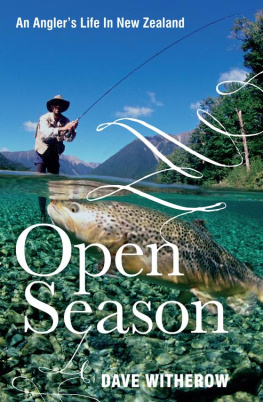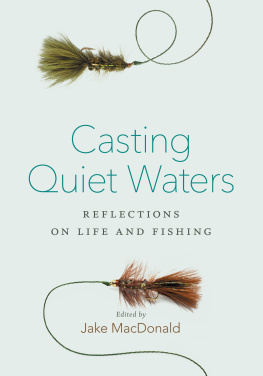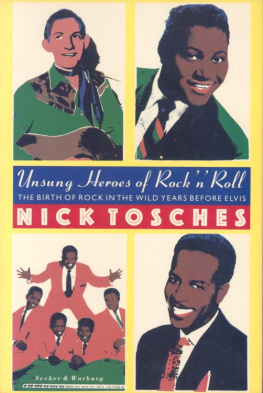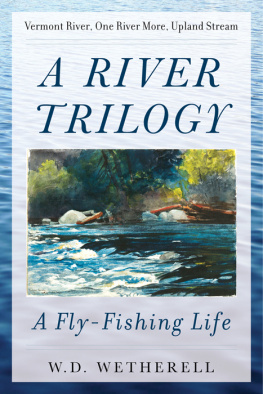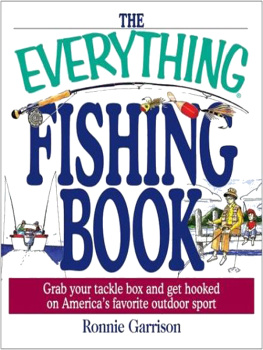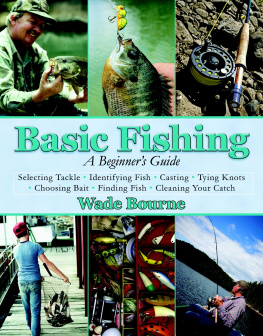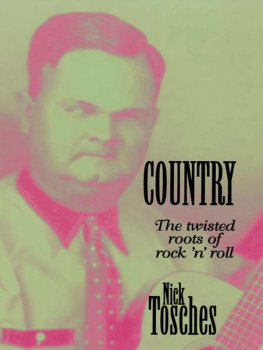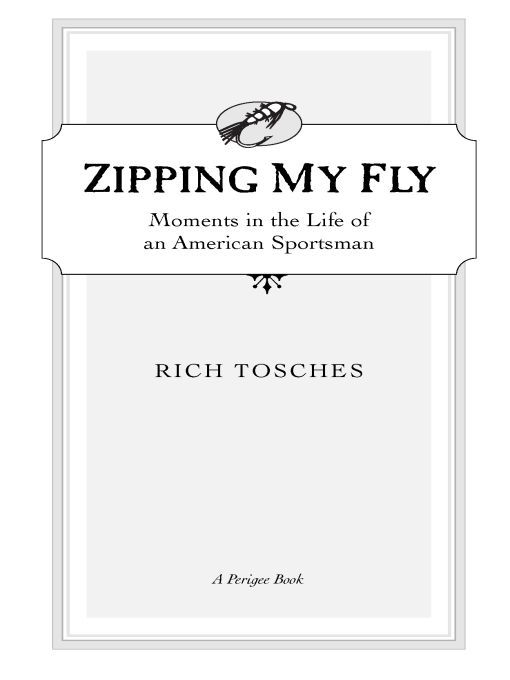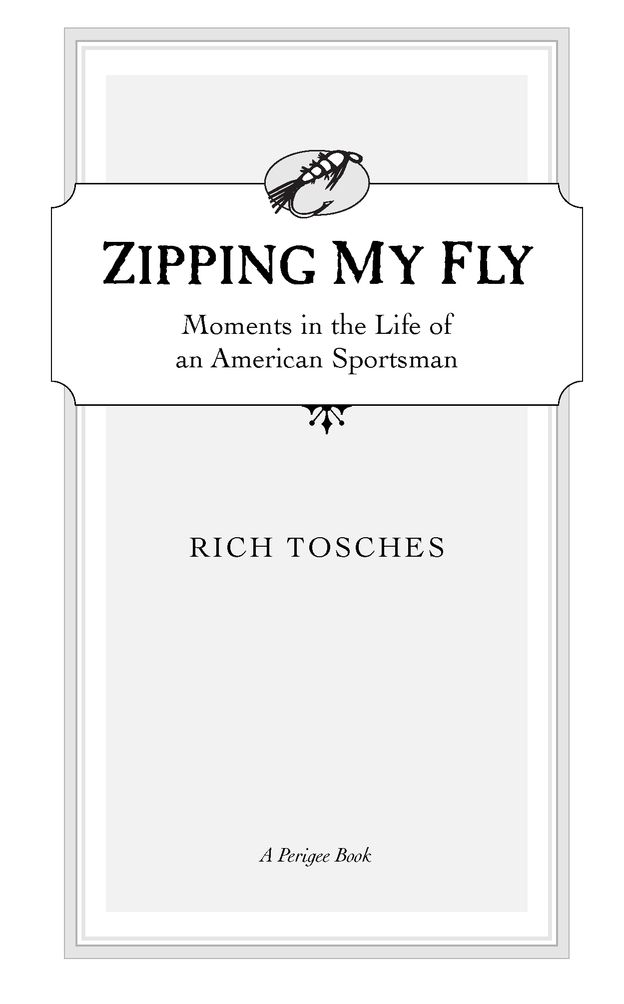Table of Contents
Most Perigee Books are available at special quantity discounts for bulk purchases for sales promotions, premiums, fund-raising or educational use. Special books, or book excerpts, can also be created to fit specific needs.
For details, write: Special Markets, The Berkley Publishing Group, 375 Hudson Street, New York, New York 10014.
INTRODUCTION
My First Fly RodMore or Less
Thirty years ago I first laid my hands on a fly rod, lifting it gen tly from the red and yellow maple leaves alongside a small creek on a crisp autumn morning in New England. As my small hands felt the perfect balance of the most magnificent fishing rod I had ever seen, my heart began to race and my step quickened, young feet gliding now along the bank of the gentle stream.
Suddenly, as what would become for me a fascination with the art of fly-fishing had barely entered its infancy, I heard a voice coming from my head, a voice that would set the tone for a lifetime of marvelous fishing adventures:
Hey, you little bastard! Get back here! Put down my fly rod!
As it turns out, the voice wasnt coming from my head. It was coming from Porky Ferrara, who owned the fly rod and felt a very powerful attachment to it, judging by the way he dragged me down from behind, wrestled the rod out of my hands, and began to choke me.
When he wasnt delivering heating oil to the homes of our small town in Massachusetts, Porky was usually fly-fishing, perfecting the art through trial and error, casting endlessly, trying to master the movements of hand that could send the line and the tiny fly whistling through the air to a precise spot where he believed a wily brown trout or cunning rainbow lay in ambush. Judging from what I saw, he often believed this precise spot was a bush forty feet up on the bank. He would generally celebrate this event by shouting something in Italian that sounded like Noah good sonamabeech! which my father told me meant My, isnt it great just to be outdoors!
So I studied my mentor, hoping to gain some insight into the science of fly-fishing. And I learned much. I learned about the hatches of insects that send trout into a feeding frenzy. I learned about the importance of stealth when stalking the cautious fish. But mostly, I learned that if you take a clump of moss about the size of your fist and stuff it into your mouth, nobody could hear you laugh.
Ive been fly-fishing ever since. The highlight came in 1990, when my employer, the Los Angeles Times, approved a sixteen-day trip to New Zealand, where I conducted extensive research into the sport and wrote a 10,500-word account of my trip, a story many literary experts said contained only seven verbs. The trip ended up costing the newspaperI am not kidding$6,875.
It did, however, have a lot to do with my development as a fly fisherman.
On a less positive note, it also had a lot to do with the fact that I dont work for the Los Angeles Times anymore.
Nevertheless, in summarizing my three decades of fly-fishing and watching others who are even more proficient in the gentle sport than I ama group of anglers I would call all of themI can, in all seriousness, say this about my first teacher in terms of his skill, grace, and knowledge of aquatic insects:
Of all the fly fishermen I have met, he was the only one named Porky.
CHAPTER 1
The World Championship: El Mucho Importante Evento
Jackson Hole, Wyoming, is a place of stunning beauty, a val ley nestled at the foot of the majestic Grand Teton Mountains, a place of almost magical splendor that the Native Americans called, in very reverent terms, totonka tanakawa, or land of $42 T-shirts.
In the summer, Jackson Holethe gateway to Yel lowstone National Parkbeckons the adventurer. And they come in great, sweeping hordes to this land of elk and moose and grizzly bear, all of them hoping for that one special moment when the eyes capture a scene that most wilderness experts believe stays with a person for a lifetime: a guy from Houston in a Dennys parking lot, trying to put his rented, three-hundred-foot Winnebago in the space marked COMPACTS ONLY.
But the most spectacular time of year in Jackson Hole is the fallwhen the air tingles with the coming winter and the geese gather for another migration and the aspen trees sparkle and the guy from Houston has now put his wife in the drivers seat as he stands behind the Winnebago with his hands over his head shouting, OKAY, NOW CUT THE WHEEL TO THE RIGHT!
And it was during a recent autumn that an event took place that the people of Jackson Hole are still talking aboutthe seventeenth annual World Fly-Fishing Championship, which attracted elite teams of anglers from eighteen nations, fishermen who spent their own money, leaving their homes in Germany and France and Wales and Denmark and Norway, traveling thousands of miles to this magnificent place with only one thought: Oops. Maybe I should have told my wife where I was going! Oh well.
Seriously, the World Fly-Fishing Championship was very exciting, leaving the Jackson residents shaking their heads as they thought about Team Englands casting skills, about Team Australias delicate dry fly presentations, about Team Spains gentle nymphing techniques, about Team Japans breathtaking fly-tying skills, and mostly, about how they would ever get the smell of cigarette smoke out of Team Germanys hotel room.
The 1996 World Fly-Fishing Championship was held in the Czech Republic, with the gold medal going to the host nation, Team Czech Republic. Team members credited their victory to an intimate knowledge of the Czech rivers, which, during the actual fishing competition, helped them determine precisely where to placuvas dyenomitovich or place the dynamite.
That was just a joke, of course. The World Fly-Fishing Championship is strictly catch-and-release, with no harm coming to any of the creatures involved. The exception would be the Germans lungs.
For this 1997 World Fly-Fishing Championship, each team consisted of five anglers. There was also a reserve angler, entrusted with many important duties (keeping the cooler filled with beer is just one example), a nonfishing team captain, and a nonfishing team manager. Prior to the competition, the team captain is required to walk out to midfield for the coin toss, where he usually drowns. Then the team manager communicates with his players via a series of hand signals that could mean cast upstream, cast downstream, use a dry fly, use a sinking nymph, or bunt.
Scoring was based on a formula involving the number and size of the trout caught, with an impartial controller measuring and recording each and every fish. The impartial controllerin more common fishing terms, the guy who isnt drinking very much and can drive homewas a professional fly-fishing guide. A professional fly-fishing guide is defined, in strict terms, as a guy who has successfully convinced his wife he is actually making a living and supporting the family in this pursuit. (An excellent guide is one who can come home at night, moan about how hard he worked that day, and talk his wife into giving The Breadwinner a foot rub.)


